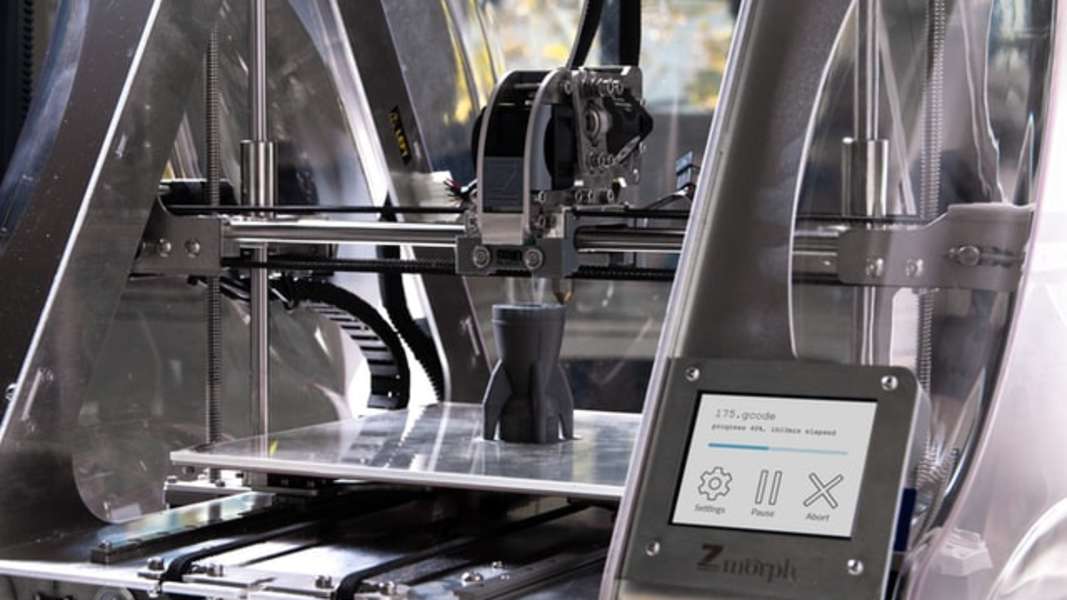
How To Hire A CNC Operator
June 14, 2022

A CNC (computer numerically controlled) operator is responsible for operating and maintaining computer-controlled tools, robots or machines that help cut or manipulate materials including metal, plastic, wood and stone. A CNC operator plays a vital role in ensuring accurate cutting and machining.
As well as the operation of the machinery itself, CNC operators need a solid understanding of how the machinery functions so they can troubleshoot, and cope with the daily challenges and demands of the role. They also need to know how to safely inspect machinery, and ensure that safety standards are always maintained.
It's a job with a high level of responsibility, so ensuring you've rigorously assessed prospective candidates is important. This article will share recommendations on the tests you can use to strengthen your recruitment process and hire the best person or people possible for the role.
What should a CNC operator be able to do?
A CNC operator needs to be able to control the machinery they're hired to work with. This includes the set-up, general usage, maintenance, storage and safety. But it also includes getting the best out of the machinery and understanding how to transfer commands from the server to the machine, writing and implementing changes to programs, and monitoring operations to compare to predetermined specifications.
The role is technical in nature and requires people to input specifications and measurements into the database, write simple computer programs and instructions, modify programs to account for any errors or issues and work with both the computer and the tools to successfully cut or build a required item or object.
The more physical nature of the role includes care for the machinery itself. This could be keeping it serviced, understanding noises that indicate problems, removing and replacing blunt tools and cleaning the equipment to keep it in good working order for as long as possible.
Overall, CNC operators need to be technically savvy and adept at computer programming and mathematics. They tend to be problem solvers by nature; able to use their intuition and knowledge of their craft to keep machines operating smoothly and to make necessary amendments or changes should something go wrong.
Skills to look for in a CNC operator
Every CNC operator needs to be able to demonstrate a certain level of technical skill, knowledge and expertise before taking on such a high-responsibility role. Looking for the following skills or familiarity with certain programs when hiring a CNC operator will help you get the best person possible for the job:
Confident with computer-aided design (CAD) software: specially formulated for mechanical design, CNC operators need to be able to use CAD software to create, modify, optimise and deploy their designs.
Knowledge of Office suite: whether it's presenting ideas, emailing designs, creating PowerPoints to share information or scheduling meetings, competent users of the Office suite will find the day-to-day demands of the role much less of a challenge.
Project management software: project management software is often used to make the planning side of the role easier, so those who can demonstrate familiarity and skill with such software will pick up that side of the job more easily.
Comfortable with analytical and scientific software: programs such as CNC Consulting Machinists' Calculator and Kentech Kipware Trig Calculator help CNC operators to perform calculations on engineering applications.
Useful abilities for a CNC operator
When hiring a CNC operator, it's important to make sure they showcase some, but ideally all, of the abilities listed below:
Quick reaction time: an essential part of the role is working in harmony with the machines to ensure accurate and timely builds. CNC operators need to be able to quickly respond to changing signals and noises.
Hearing sensitivity: being able to detect different pitches and sounds, and determine their meaning is a crucial part of the role, and one that often comes with experience.
Critical thinking: using internal logic and reasoning to analyse different ideas and their possible outcomes are important for roles such as CNC operator, where thinking on your feet and responding to different challenges is an everyday part of the role.
Problem-solving: strong problem-solvers often make good CNC operators as things change quickly on the job, and people need to be able to react swiftly and sensibly.
Attention to detail: whether it's inputting computer data, looking after the machinery or ensuring the outcome is a perfect replica of the design, CNC operators are required to have meticulous attention to detail.
Which soft skills tests could I use to hire a CNC operator?
Assessing various soft skills can help you strengthen your recruitment process by getting a more well-rounded view of the candidates you have. For CNC operators, we recommend utilising specific tests or editing your interview questions to look for the following soft skills:
Problem-solving: solving problems under pressure isn't easy for anyone. But some have a more natural flair for it, and these are the type of people you want working for you as a CNC operator. A problem-solving skills test can help you see if candidates have what it takes to do the job, through a series of hypothetical questions that require them to solve problems.
Adaptability: being able to adapt to unforeseen circumstances or last-minute changes is a really useful skill. Especially in fast-paced roles where finding solutions or workarounds can be essential.
Decision making: tying together problem solving and critical thinking, the decision-making test looks at how confident an individual is in making decisions in high-pressure situations. This is really important when looking to hire a CNC operator.
Which technical or aptitude tests could I use to hire a CNC operator?
Aptitude tests are a really helpful way of assessing candidates' skills and seeing how well they cope under time pressure. If you have a few candidates who appear similar on paper, an aptitude test can help you decide who to take forward for an interview. We recommend assessing prospective CNC operators with the following aptitude tests:
Mechanical Reasoning: the mechanical reasoning test is designed to examine mechanical, electrical and engineering knowledge. It will help you determine if candidates have a good grasp on theories including energy, electricity and force.
Logical Reasoning: logical reasoning tests are non-verbal and non-numerical, they require candidates to use their problem-solving skills to take limited information and use it to complete a pattern of shapes or images.
Numerical Reasoning: strong mathematical skills are essential for CNC operators. The numerical reasoning test assesses how confident an individual is working with basic mathematical principles under tight time pressure.
Our recommended test battery for a CNC operator
There are many different tests you could select to help bolster your recruitment process when hiring a CNC operator. We'd recommend this combination:
Mechanical Reasoning: ensuring your CNC operator is comfortable with engineering, electrical and mechanical processes and principles is essential, and the mechanical reasoning test will help you do just that.
Logical Reasoning: a logical reasoning test is always a good idea for practical roles such as this. It shows whether the candidates in front of you are natural-born problem solvers and how comfortable they are completing challenges under pressure.
Problem Solving: problem-solving is a large part of the day-to-day job, and what can sometimes make it so challenging. We recommend setting a problem-solving test to see how well candidates react and to better understand how they think and reason.
Decision making: tying together problem solving and critical thinking, it is really important when looking to hire a CNC operator that they are good decision makers.
For more information on hiring a CNC operator, visit Neuroworx's CNC operator test page.
Boost your hiring power.
Start using Neuroworx today.
Talk is cheap. We offer a 14-day free trial so you can see our platform for yourselves.
Try for free




